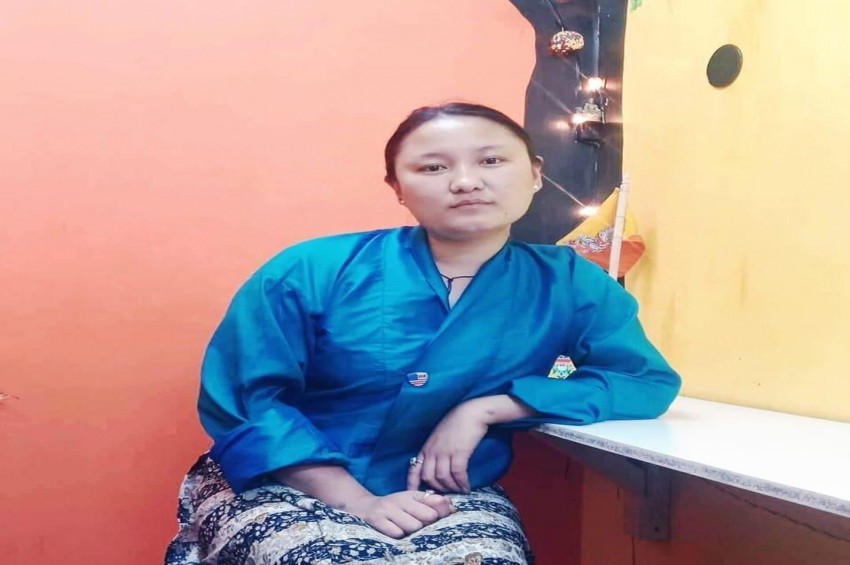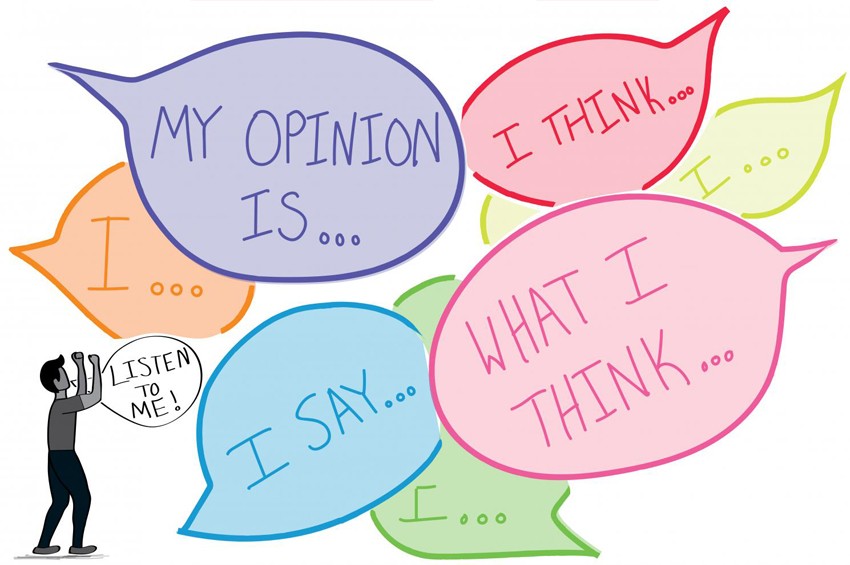Bhutanese are responsible for Bhutan - Dzongsar Jamyang Khyentse Rinpoche
An author, film maker, photographer, but most of all, one of the most reputed Buddhist Masters within Bhutan and the World, Dzongsar Jamyang Khyentse Rinpoche, Thubten Chokyi Gyamtso was born in Bhutan in 1961. When he was seven, Rinpoche was recognized by His Holiness Sakya Trizin as the main incarnation ofDzongsar Jamyang Khyentse Chokyi Lodro, the spiritual heir of one of the most influential and admired 19th century incarnations of Manjushri (the Buddha of Wisdom), Jamyang Khyentse Wangpo. Today Rinpoche has established Buddhist institutions in many parts of the world and has followers from almost all pockets of the globe.
In this exclusive interview with The Journalist, Rinpoche throws light on several topics and issues, beginning from film making to culture, the Australian Rush and striving for excellence. Rinpoche adds that BICMA fulfilled their responsibilities from banning “Hema Hema” to be screened in Bhutan. On the cultural front, Rinpoche says it is also simply unrealistic to hold on to some of the archaic aspects of our so-called tradition and culture, and that we really need to think ahead and be ready for what is to come.
Rinpoche also underlines the need to create conditions within Bhutan so that Bhutanese leaving the country will miss the country and elaborates on the “smug Bhutanese inertia,” a phrase chiseled by Rinpoche, referring to the Bhutanese attitude of not striving for excellence.
Rinpoche further says that the world is moving so fast and that it is a real uphill task for countries like ours to preserve certain precious values and reminds us that “only the Bhutanese themselves can do that for Bhutan, because only they are responsible for Bhutan.”
1. We have heard that Rinpoche is making a new movie. Could Rinpoche kindly elaborate on what it is about, what stage it has reached and some of the messages Rinpoche wants to convey through the movie?
Yes, I have a tentative plan and some vague idea about the movie I want to make, but I am not sure it will materialize. I don’t dare claim it will have a message, but because of my label, a few people may assume it has messages. As for what it is about, I guess the film is about the experience of being in limbo in our life and beyond.
As you probably know, not many people watch my films, and this will likely be the case here too. So, I am doing it simply out of love for the creative process, and in order to work with fellow Bhutanese who have a similar interest.
2. We have always been intrigued by the fact that Rinpoche is also into movie making. How did this happen? And how does movie as an art, blend into the overall scheme or structure of achieving satisfaction, joy and happiness?
I can understand why some people are puzzled by this, because, for some peculiar reason, film-making is nearly always associated with the entertainment business and definitely not something spiritual. So, because I have a label associated with the spiritual world, people have always been curious why I make films.
But in reality, film-making is just a medium – like a keyboard you use to type, or a pencil, brush and ink you use to paint, draw or write. You can use these tools to express all kinds of things, including content that could be beneficial. Through friends and exposure to various influences, I gradually came to realize that this medium of film, with its moving pictures and sound, has definite power.
Although the significance of film is evolving and other media are now emerging, I still believe that film does have a certain impact. Just like books and music, film can also shift the way you look at life in general. It is well known that governments, the military, business and other institutions use the medium of film to make people think and want what they want people to think and want. By the same logic, I think that, if we are savvy, we can also use this medium to create something beneficial.
3. Rinpoche’s previous film made in Bhutan, ‘Hema Hema: Sing me a Song While I Wait’ was banned for screening in Bhutan by BICMA. Now that you are planning to make another movie in Bhutan, are you going to be abiding by the rules and regulations set forth by the NFC (the newly established regulator of films in Bhutan)?
First and foremost, I want to express something I never had the opportunity to say before, so I am glad to have that opportunity now. After some contemplation, I found myself very impressed that BICMA had refrained from allowing Hema Hema to be shown. Regardless of its reasons, I believe that rules must apply to everyone. So, I shouldn’t have any privileges just because I have a title that puts me in some elite category. In that regard, BICMA set a good example for us all.
For this upcoming film, we will follow all due processes in applying for the filming permit. If that is granted, only then will we shoot the film and, when completed, will submit it for review. If NFC doesn’t approve it, we will of course respect that decision.
4. Over the past few years, there have been several Bhutanese films and filmmakers who have achieved recognition at the international levels. These films have done so much to promote the ‘Bhutan’ brand, often representing Bhutan as cultural and artistic ambassadors. They have achieved all this with little or no support from within Bhutan, competing against bigger funded films who have the full backing of their respective governments. Other governments such as South Korea do so much to help their filmmakers as they see them as ‘soft power.’ How can the Bhutanese government support these filmmakers?
Your question is important and also difficult. I see this from many angles. One could easily say that the Government of Bhutan has many pressing issues to address. From that angle, support for film-making could be near the bottom of government’s list of priorities.
At the same time, it is high time for people in government, policy makers, and elites altogether really to think deeply about our future. This is the difficult part. So, to answer your question properly, I want to divide it into two parts:
First, what do we mean by the arts and culture we want government to support?
If we look to the future, we see that the question of identity is already becoming a more and more dominating problem world-wide. The more the world has become globalized in this century, the more pressing the issue of who we are, both as individuals and as Chinese, Indians, Americans, and of course Bhutanese, has become.
In fact, sheer technological advance is hugely speeding up this prodding at the nagging question of who we are, and of course the internet and social media make it no easier. At the end of the day, our values and sense of purpose still need to have their roots in a clear picture of who we are as individuals and as a people. What others think of who we are is not nearly as important as knowing ourselves.
Right now, we may feel satisfied when those we meet say that Bhutanese are the happiest people on earth. But to be honest, I feel very uneasy and uncomfortable when people tell me this. Has this become our identity?
Culture and tradition certainly serve some purpose in filling the gap in our understanding of who we are as a people. But we have to be very careful here, because the very culture and tradition that we think creates our identity, can at times suffocate us or even neuter us, even when the culture is sacred.
So we really need to look deeply into our so-called culture and tradition. Some of it may be truly sacred, inspiring, and useful to us today. Other parts may be quite archaic, outdated, confusing, and deny the way we live and think today.
If we really dare to look, we will find that a lot of what we now cling and hold on to as traditional was once modern. So, to what extent should we keep everything traditional? This is such a grey area that those in charge have to be really savvy and creative. After all, culture creates mindsets, some of which may be rewarding while others are very unproductive.
For instance, why is it that our people hesitate to work as a sweeper in Bhutan but do everything to get the same job in Perth? Where does that confusion come from? If our culture did not look down at sweepers and masonry workers, we might even solve the present conundrum of having high local unemployment while we bring in lots of foreigners to work for us.
We really need to address these kinds of conflicts and ask some hard questions. Could it be that our culture makes little space for the dignity of labour? Might it be that a very narrow view of culture and tradition makes people feel more breathing space elsewhere?
It is also simply unrealistic to hold on to some of the archaic aspects of our so-called tradition and culture. Instead, I think we really need to think ahead and be ready for what is to come.
Are we ready to accept that the world now has more than 50-odd definitions of different gender options? And even at a superficial level, will Babesa remain as it is now, or can we envision 30 or 60-floor apartment buildings there? And if so, will our architecture department still insist on traditional roofs?
Unless we ask such questions about daily life, we will never address modernity’s real challenges. Within our own lifetimes, for example, it is very possible that Bhutanese will no longer think about karma and reincarnation, and that Paro Taktshang will end up becoming a museum piece not just for tourists but even for our own people.
We will never counter such trends unless we dare to look into the future, to face the question of identity, to ask what we truly mean by culture and tradition, and to build the vibrant, dynamic, evolving culture we so urgently need.
So, the people responsible for culture and tradition can’t just be expert in old cultural traditions, telling us how to tie Bhutanese shoes properly or how far to raise a man’s gho. In fact, I think we have done a good job preserving our so-called traditional culture. But we are dangerously lagging behind in developing a mindset that considers the future. That is where I think we now need to put our efforts.
We now need good people in our government and cultural institutions who will really think ahead on how our culture can evolve creatively and dynamically, while still keeping core values in the new design – values like decency, humility, seeing nature as sacred, and caring for the collective rather just the individual.
Our elites, officials and cultural leaders need to recognize that being creative is a deep human instinct that can be very satisfying. It can give young people a sense of purpose and usefulness. That creativity can be as mundane as finding creative ways to cook ema datsi or wear a kira to look both innocent and sassy at the same time, or as complex as making a film and composing music. Rather than shunning such creativity in the name of tradition, we should find ways of encouraging it.
To do that, our responsible people in government and cultural institutions really need to be diligent in thinking ahead. We need authorities responsible for cultural preservation who have Instagram and Tik Tok accounts and who are busy checking what fifteen-year-old Bhutanese boys and girls are browsing in Thimphu, Paro, Perth, and Jackson Heights.
Now, coming back to your original question from this perspective, how might government view cultural arts like film-making?
Leni Riefenstahl’s 1935 film, Triumph of the Will is believed to have played a significant role in promoting Hitler and Nazism. The communist Chinese during the Mao era did something very similar, using filmed dance, choreography and song to really promote the value of communism.
As Adam Curtis’ television series Century of the Self indicates, media such as films are very powerful and can change people’s minds. Just as film is often effectively used to brainwash people, it is very possible that we too can wash people’s brains the way we want to wash them.
Besides that, films and music can also be used to preserve language and culture. I dare say Bhutanese films may be doing more to preserve the Dzongkha language than any government agency.
But here I think we need to be quite brave, in the sense that we must be ready to make mistakes. The task can’t be left just to some film-makers, but will require a group effort and proper support from the very top. Until that happens, bureaucrats will not lift a finger because, understandably, they will not imperil the government job they have cherished for twenty years.
5. As Rinpoche is aware, hundreds of Bhutanese are leaving for Australia seeking greener pastures. What is Rinpoche’s comment on this – why is it happening; is it just the power of the dollar or are there other reasons. And what should we do la?
I have visited these Bhutanese in Perth or Jackson Heights in America, and see how they try to make a home away from home by creating a mini-Bhutan in their new environments. That tells me that they miss Bhutan and love Bhutan.
So what we have to do within Bhutan is to create conditions that will make them miss it even more. We need to appreciate how hard this generation of overseas Bhutanese is working in order to send well-earned currency to help their people back home. But it’s their children for whom we need to worry. So for them, what we need to do is create a country that is so irresistible that the next generation will simply want to come home.
6. Many critical Bhutanese are worried by our lack of “wishing to strive for excellence”, and ‘being just being content with doing the bare minimum’. If these attitudes continue, where do you see Bhutan in the next decade?
This is a very important question, and I sometimes call this phenomenon “smug Bhutanese inertia.”
Outsiders often see Bhutan as a Shangri-la – the world’s happiest country. We have indeed been blessed with remarkable good fortune, and should be grateful that we have never had a major disaster like a bad famine or invasion. I am not saying that something bad should happen to Bhutan, but that we at least need to be mindful that this same good fortune may not have pushed us to the limit so that we become mature.
If I were giving this interview a hundred years ago, I might say everything is fine and perfect and we should just stay like this. But the world has changed a lot and I don’t know whether we can afford to ignore the new realities we face.
For instance, we have long lived in a culture of hand-outs that I also see among many Tibetans. I see this dependence on others’ hand-outs permeating all levels of society, thought and dialogue. But assuming that big sister or big brother will always take care of us really kills creativity and is dangerous.
I am not talking here only about creativity in arts like film-making, music, and literature, but the creativity simply to exist. Thus, the creativity required to be independent and self-sufficient can easily get lost, so that we gradually end up becoming cannon fodder for others.
Individuals of course may be sincere and caring. But it is totally unwise to think that other nations, with their own vested interests, will care for us. And so, Bhutan’s ongoing dependence worries me simply because others will not hesitate to use Bhutanese to serve their own interests. In the end, the only people who care about Bhutan are the Bhutanese themselves.
The present inertia or lack of striving for excellence seems to pervade all aspects of life in Bhutan. Superficially, we may be very proud of our handicrafts, painting and so on. But I am sorry to say honestly that these crafts are really not excellent. The best basket weaving in Bhutan, for example, does not hold a candle to even the most mediocre Balinese basket weaving.
I see this in film too. I don’t want Bhutanese actors to take this personally, but even when they do their best, they can really do much, much more. But to strive for excellence, one has to be really disciplined and set one’s goals high. I understand that Ben Kingsley, after he was cast as Richard Attenborough’s Gandhi, watched clips of Gandhi, read books about him, and even fasted and drank lemon water to experience the character properly.
7. Any other comments Rinpoche.
The world is moving so fast that it is a real uphill task for countries like ours to preserve certain precious values. Only the Bhutanese themselves can do that for Bhutan, because only they are responsible for Bhutan.
Gone are the days when we had the luxury of preserving our culture and tradition independently from considering the economy and communications with the rest of the world. All that is now so intertwined that we cannot stop the weight and force of change.
Observing social change, we see that it often takes only one or two trends to change a society quite significantly and for long periods. So, it is really important to be mindful of the way trends move. It’s like surfing. In the midst of many different and often unexpected waves, we must learn to surf with the various waves without losing our core values, while still being harmonious with the most unexpected waves.
In this exclusive interview with The Journalist, Rinpoche throws light on several topics and issues, beginning from film making to culture, the Australian Rush and striving for excellence. Rinpoche adds that BICMA fulfilled their responsibilities from banning “Hema Hema” to be screened in Bhutan. On the cultural front, Rinpoche says it is also simply unrealistic to hold on to some of the archaic aspects of our so-called tradition and culture, and that we really need to think ahead and be ready for what is to come.
Rinpoche also underlines the need to create conditions within Bhutan so that Bhutanese leaving the country will miss the country and elaborates on the “smug Bhutanese inertia,” a phrase chiseled by Rinpoche, referring to the Bhutanese attitude of not striving for excellence.
Rinpoche further says that the world is moving so fast and that it is a real uphill task for countries like ours to preserve certain precious values and reminds us that “only the Bhutanese themselves can do that for Bhutan, because only they are responsible for Bhutan.”
1. We have heard that Rinpoche is making a new movie. Could Rinpoche kindly elaborate on what it is about, what stage it has reached and some of the messages Rinpoche wants to convey through the movie?
Yes, I have a tentative plan and some vague idea about the movie I want to make, but I am not sure it will materialize. I don’t dare claim it will have a message, but because of my label, a few people may assume it has messages. As for what it is about, I guess the film is about the experience of being in limbo in our life and beyond.
As you probably know, not many people watch my films, and this will likely be the case here too. So, I am doing it simply out of love for the creative process, and in order to work with fellow Bhutanese who have a similar interest.
2. We have always been intrigued by the fact that Rinpoche is also into movie making. How did this happen? And how does movie as an art, blend into the overall scheme or structure of achieving satisfaction, joy and happiness?
I can understand why some people are puzzled by this, because, for some peculiar reason, film-making is nearly always associated with the entertainment business and definitely not something spiritual. So, because I have a label associated with the spiritual world, people have always been curious why I make films.
But in reality, film-making is just a medium – like a keyboard you use to type, or a pencil, brush and ink you use to paint, draw or write. You can use these tools to express all kinds of things, including content that could be beneficial. Through friends and exposure to various influences, I gradually came to realize that this medium of film, with its moving pictures and sound, has definite power.
Although the significance of film is evolving and other media are now emerging, I still believe that film does have a certain impact. Just like books and music, film can also shift the way you look at life in general. It is well known that governments, the military, business and other institutions use the medium of film to make people think and want what they want people to think and want. By the same logic, I think that, if we are savvy, we can also use this medium to create something beneficial.
3. Rinpoche’s previous film made in Bhutan, ‘Hema Hema: Sing me a Song While I Wait’ was banned for screening in Bhutan by BICMA. Now that you are planning to make another movie in Bhutan, are you going to be abiding by the rules and regulations set forth by the NFC (the newly established regulator of films in Bhutan)?
First and foremost, I want to express something I never had the opportunity to say before, so I am glad to have that opportunity now. After some contemplation, I found myself very impressed that BICMA had refrained from allowing Hema Hema to be shown. Regardless of its reasons, I believe that rules must apply to everyone. So, I shouldn’t have any privileges just because I have a title that puts me in some elite category. In that regard, BICMA set a good example for us all.
For this upcoming film, we will follow all due processes in applying for the filming permit. If that is granted, only then will we shoot the film and, when completed, will submit it for review. If NFC doesn’t approve it, we will of course respect that decision.
4. Over the past few years, there have been several Bhutanese films and filmmakers who have achieved recognition at the international levels. These films have done so much to promote the ‘Bhutan’ brand, often representing Bhutan as cultural and artistic ambassadors. They have achieved all this with little or no support from within Bhutan, competing against bigger funded films who have the full backing of their respective governments. Other governments such as South Korea do so much to help their filmmakers as they see them as ‘soft power.’ How can the Bhutanese government support these filmmakers?
Your question is important and also difficult. I see this from many angles. One could easily say that the Government of Bhutan has many pressing issues to address. From that angle, support for film-making could be near the bottom of government’s list of priorities.
At the same time, it is high time for people in government, policy makers, and elites altogether really to think deeply about our future. This is the difficult part. So, to answer your question properly, I want to divide it into two parts:
First, what do we mean by the arts and culture we want government to support?
If we look to the future, we see that the question of identity is already becoming a more and more dominating problem world-wide. The more the world has become globalized in this century, the more pressing the issue of who we are, both as individuals and as Chinese, Indians, Americans, and of course Bhutanese, has become.
In fact, sheer technological advance is hugely speeding up this prodding at the nagging question of who we are, and of course the internet and social media make it no easier. At the end of the day, our values and sense of purpose still need to have their roots in a clear picture of who we are as individuals and as a people. What others think of who we are is not nearly as important as knowing ourselves.
Right now, we may feel satisfied when those we meet say that Bhutanese are the happiest people on earth. But to be honest, I feel very uneasy and uncomfortable when people tell me this. Has this become our identity?
Culture and tradition certainly serve some purpose in filling the gap in our understanding of who we are as a people. But we have to be very careful here, because the very culture and tradition that we think creates our identity, can at times suffocate us or even neuter us, even when the culture is sacred.
So we really need to look deeply into our so-called culture and tradition. Some of it may be truly sacred, inspiring, and useful to us today. Other parts may be quite archaic, outdated, confusing, and deny the way we live and think today.
If we really dare to look, we will find that a lot of what we now cling and hold on to as traditional was once modern. So, to what extent should we keep everything traditional? This is such a grey area that those in charge have to be really savvy and creative. After all, culture creates mindsets, some of which may be rewarding while others are very unproductive.
For instance, why is it that our people hesitate to work as a sweeper in Bhutan but do everything to get the same job in Perth? Where does that confusion come from? If our culture did not look down at sweepers and masonry workers, we might even solve the present conundrum of having high local unemployment while we bring in lots of foreigners to work for us.
We really need to address these kinds of conflicts and ask some hard questions. Could it be that our culture makes little space for the dignity of labour? Might it be that a very narrow view of culture and tradition makes people feel more breathing space elsewhere?
It is also simply unrealistic to hold on to some of the archaic aspects of our so-called tradition and culture. Instead, I think we really need to think ahead and be ready for what is to come.
Are we ready to accept that the world now has more than 50-odd definitions of different gender options? And even at a superficial level, will Babesa remain as it is now, or can we envision 30 or 60-floor apartment buildings there? And if so, will our architecture department still insist on traditional roofs?
Unless we ask such questions about daily life, we will never address modernity’s real challenges. Within our own lifetimes, for example, it is very possible that Bhutanese will no longer think about karma and reincarnation, and that Paro Taktshang will end up becoming a museum piece not just for tourists but even for our own people.
We will never counter such trends unless we dare to look into the future, to face the question of identity, to ask what we truly mean by culture and tradition, and to build the vibrant, dynamic, evolving culture we so urgently need.
So, the people responsible for culture and tradition can’t just be expert in old cultural traditions, telling us how to tie Bhutanese shoes properly or how far to raise a man’s gho. In fact, I think we have done a good job preserving our so-called traditional culture. But we are dangerously lagging behind in developing a mindset that considers the future. That is where I think we now need to put our efforts.
We now need good people in our government and cultural institutions who will really think ahead on how our culture can evolve creatively and dynamically, while still keeping core values in the new design – values like decency, humility, seeing nature as sacred, and caring for the collective rather just the individual.
Our elites, officials and cultural leaders need to recognize that being creative is a deep human instinct that can be very satisfying. It can give young people a sense of purpose and usefulness. That creativity can be as mundane as finding creative ways to cook ema datsi or wear a kira to look both innocent and sassy at the same time, or as complex as making a film and composing music. Rather than shunning such creativity in the name of tradition, we should find ways of encouraging it.
To do that, our responsible people in government and cultural institutions really need to be diligent in thinking ahead. We need authorities responsible for cultural preservation who have Instagram and Tik Tok accounts and who are busy checking what fifteen-year-old Bhutanese boys and girls are browsing in Thimphu, Paro, Perth, and Jackson Heights.
Now, coming back to your original question from this perspective, how might government view cultural arts like film-making?
Leni Riefenstahl’s 1935 film, Triumph of the Will is believed to have played a significant role in promoting Hitler and Nazism. The communist Chinese during the Mao era did something very similar, using filmed dance, choreography and song to really promote the value of communism.
As Adam Curtis’ television series Century of the Self indicates, media such as films are very powerful and can change people’s minds. Just as film is often effectively used to brainwash people, it is very possible that we too can wash people’s brains the way we want to wash them.
Besides that, films and music can also be used to preserve language and culture. I dare say Bhutanese films may be doing more to preserve the Dzongkha language than any government agency.
But here I think we need to be quite brave, in the sense that we must be ready to make mistakes. The task can’t be left just to some film-makers, but will require a group effort and proper support from the very top. Until that happens, bureaucrats will not lift a finger because, understandably, they will not imperil the government job they have cherished for twenty years.
5. As Rinpoche is aware, hundreds of Bhutanese are leaving for Australia seeking greener pastures. What is Rinpoche’s comment on this – why is it happening; is it just the power of the dollar or are there other reasons. And what should we do la?
I have visited these Bhutanese in Perth or Jackson Heights in America, and see how they try to make a home away from home by creating a mini-Bhutan in their new environments. That tells me that they miss Bhutan and love Bhutan.
So what we have to do within Bhutan is to create conditions that will make them miss it even more. We need to appreciate how hard this generation of overseas Bhutanese is working in order to send well-earned currency to help their people back home. But it’s their children for whom we need to worry. So for them, what we need to do is create a country that is so irresistible that the next generation will simply want to come home.
6. Many critical Bhutanese are worried by our lack of “wishing to strive for excellence”, and ‘being just being content with doing the bare minimum’. If these attitudes continue, where do you see Bhutan in the next decade?
This is a very important question, and I sometimes call this phenomenon “smug Bhutanese inertia.”
Outsiders often see Bhutan as a Shangri-la – the world’s happiest country. We have indeed been blessed with remarkable good fortune, and should be grateful that we have never had a major disaster like a bad famine or invasion. I am not saying that something bad should happen to Bhutan, but that we at least need to be mindful that this same good fortune may not have pushed us to the limit so that we become mature.
If I were giving this interview a hundred years ago, I might say everything is fine and perfect and we should just stay like this. But the world has changed a lot and I don’t know whether we can afford to ignore the new realities we face.
For instance, we have long lived in a culture of hand-outs that I also see among many Tibetans. I see this dependence on others’ hand-outs permeating all levels of society, thought and dialogue. But assuming that big sister or big brother will always take care of us really kills creativity and is dangerous.
I am not talking here only about creativity in arts like film-making, music, and literature, but the creativity simply to exist. Thus, the creativity required to be independent and self-sufficient can easily get lost, so that we gradually end up becoming cannon fodder for others.
Individuals of course may be sincere and caring. But it is totally unwise to think that other nations, with their own vested interests, will care for us. And so, Bhutan’s ongoing dependence worries me simply because others will not hesitate to use Bhutanese to serve their own interests. In the end, the only people who care about Bhutan are the Bhutanese themselves.
The present inertia or lack of striving for excellence seems to pervade all aspects of life in Bhutan. Superficially, we may be very proud of our handicrafts, painting and so on. But I am sorry to say honestly that these crafts are really not excellent. The best basket weaving in Bhutan, for example, does not hold a candle to even the most mediocre Balinese basket weaving.
I see this in film too. I don’t want Bhutanese actors to take this personally, but even when they do their best, they can really do much, much more. But to strive for excellence, one has to be really disciplined and set one’s goals high. I understand that Ben Kingsley, after he was cast as Richard Attenborough’s Gandhi, watched clips of Gandhi, read books about him, and even fasted and drank lemon water to experience the character properly.
7. Any other comments Rinpoche.
The world is moving so fast that it is a real uphill task for countries like ours to preserve certain precious values. Only the Bhutanese themselves can do that for Bhutan, because only they are responsible for Bhutan.
Gone are the days when we had the luxury of preserving our culture and tradition independently from considering the economy and communications with the rest of the world. All that is now so intertwined that we cannot stop the weight and force of change.
Observing social change, we see that it often takes only one or two trends to change a society quite significantly and for long periods. So, it is really important to be mindful of the way trends move. It’s like surfing. In the midst of many different and often unexpected waves, we must learn to surf with the various waves without losing our core values, while still being harmonious with the most unexpected waves.














